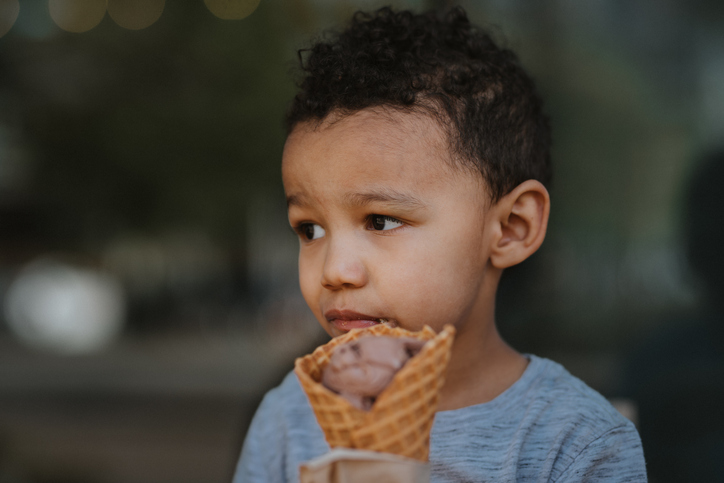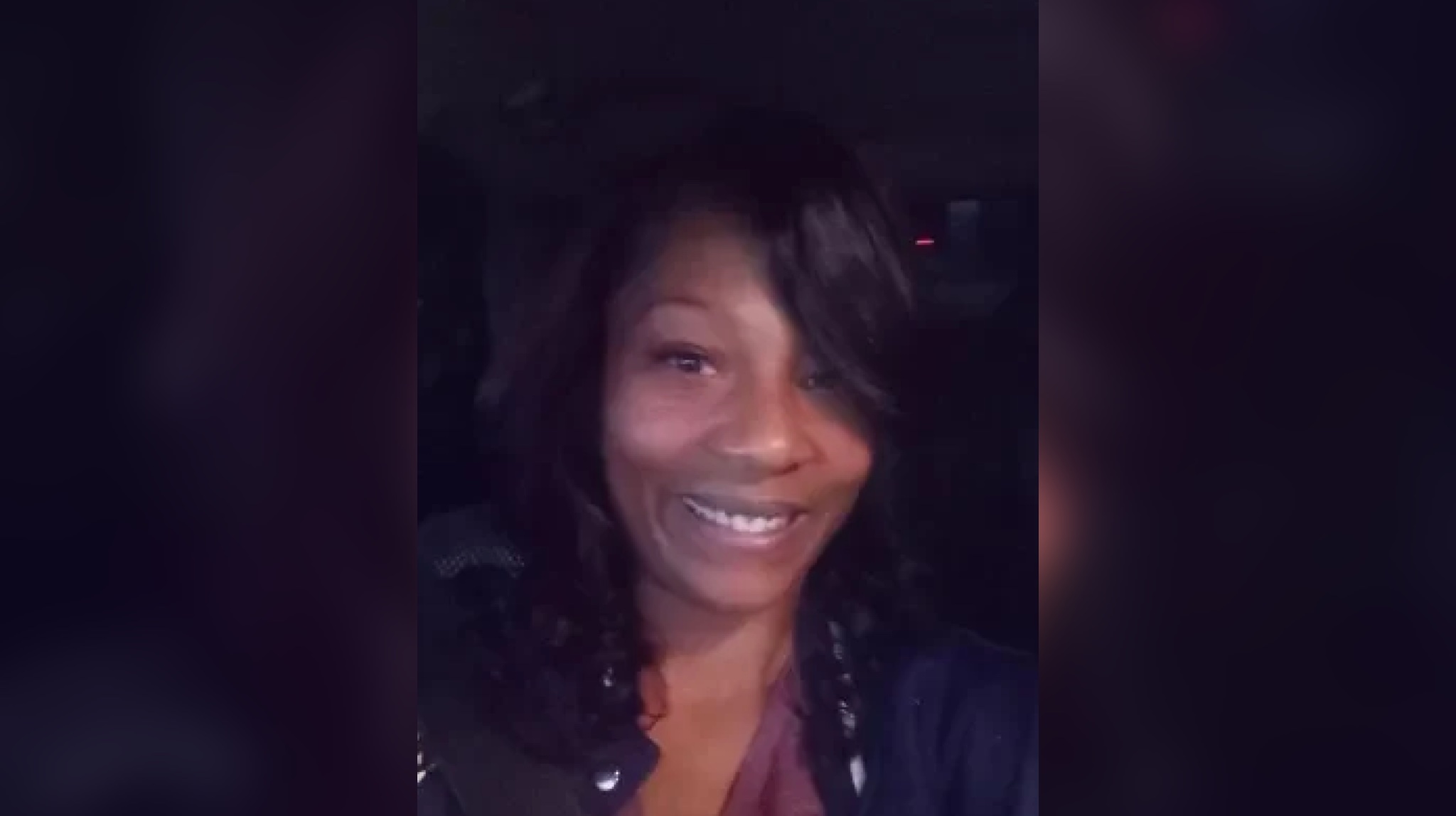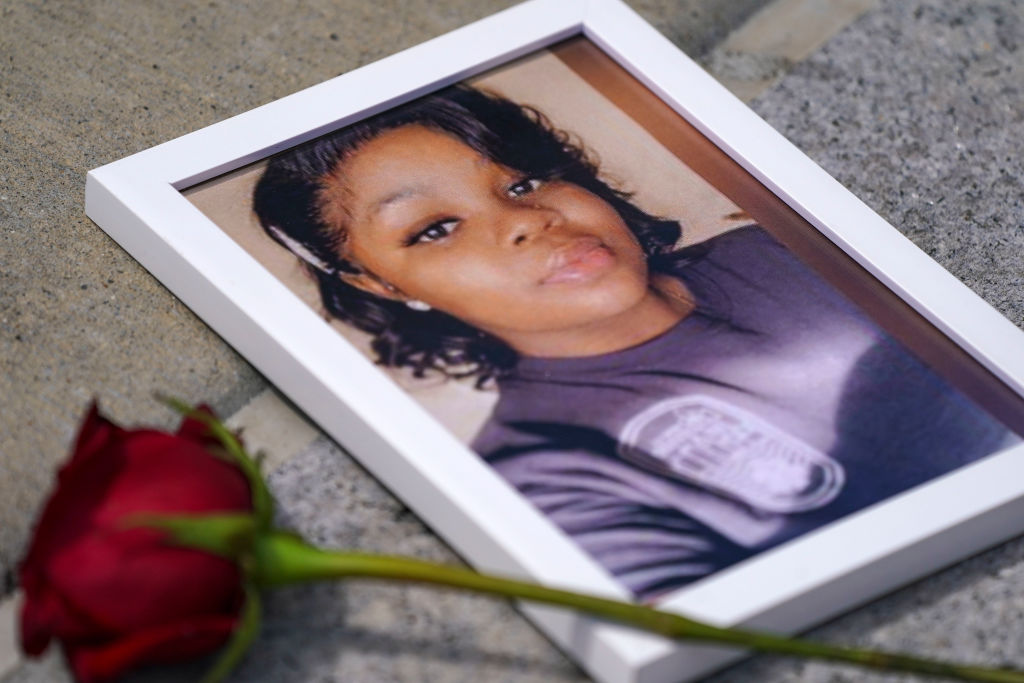The Dangerous Implications Of The Viral 911 Ice Cream Call
Stop Laughing — This Toddler’s 911 Call Over Ice Cream Could Have Turned Deadly [Op-Ed]
Share the post
Share this link via
Or copy link

Source: Fly View Productions / Getty
This Women’s History Month, a viral story about a young Black boy calling the police on his mother for eating his ice cream has been making headlines. Many have framed the moment as an innocent, humorous rite of passage—“baby’s first 911 call.” Media has leaned into the lighthearted angle, emphasizing the police’s “heroic” return with ice cream and the child’s change of heart about sending his mother to jail. However, this framing ignores a darker reality that some Black women and our advocates find deeply unsettling.
Love MadameNoire? Get more! Join the MadameNoire Newsletter
We care about your data. See our privacy policy.
It is impossible to separate this viral story from the very real dangers Black women face when police show up at their doors. While the general public can afford to laugh at a child’s misunderstanding of emergency services, Black women don’t have that luxury. The same threat that exists for Black men when law enforcement is called exists for Black women—but it is often dismissed, ignored, or trivialized.
RELATED CONTENT: The Lasting Impact Of #SayHerName For Black Women And Girls — 10 Years Later
A Viral Moment That Could Have Gone Very Differently
The incident occurred in Mount Pleasant, Wisconsin, where the boy dialed 911 after his mother pretended to eat his ice cream. According to CBS News, when officers arrived at the home, they found nothing serious and returned later with ice cream for the child. Although the mother explained that she only pretended to eat her son’s ice cream because of his behavior, CNN led its report with “There are some things in life you just don’t do—like steal someone’s ice cream.”
This isn’t just a case of an overdramatic toddler. The way the media framed the officers as friendly and helpful feeds into a broader narrative of “copaganda,” a term used to describe media narratives or portrayals that promote a positive, often sanitized view of law enforcement while downplaying or ignoring the real dangers and consequences of policing—especially in marginalized communities. These seemingly lighthearted interactions sanitize the reality of police violence, particularly against Black women. It also obscures how quickly these situations can escalate, especially in a society that routinely misjudges Black women’s emotions and intentions.
Michael Franklin, Chief Thought Leadership Officer at Words Normalize Behavior LLC, and Chauna Lawson, advocate, philanthropist, and founder of the HBCU Convention (HBCU Con), shared their thoughts on the viral ice cream 911 call and its implications for Black communities with MadameNoire.
Franklin, an expert in the intersection of media narratives and misogynoir, pointed out that while the incident was framed as humorous, it could have easily taken a tragic turn.
He noted: “The framing of the recent viral police-related story is rooted in misogynoir because, while it’s being treated as lighthearted and humorous, it was one bad reaction away from turning into a tragedy.” He emphasized the risk of downplaying the potential for violence, especially against Black women, in such seemingly innocuous situations.

Source: Steph Yin / Steph Yin
Lawson, a seasoned advocate and leader in the Black community, expanded the discussion by referencing the long history of violence and criminalization faced by Black families. She stressed that this viral incident, while seemingly harmless, could have easily escalated into something far more dangerous:
“While we would love for this incident to be a wholesome, feel-good moment, that is simply not the case for us Black folks. Given the long history of violence and disproportionate criminalization of our communities, we know all too well how this incident could have easily become traumatizing or even deadly for this Wisconsin family.”
Both Franklin and Lawson took issue with the media’s portrayal of law enforcement as “heroes” for their handling of the situation. Lawson critiqued the officers’ actions, especially the photo-op with the child, which she believes was more about publicity than genuinely positive engagement:
“The photo-op with the child, while it may have had harmless intent, has an impact that feels very much like a slap in the face for the sake of publicity,” Lawson said.

Sonya Massey. Source: Wikipedia / Wikipedia
She also highlighted the broader systemic issues that make interactions with law enforcement dangerous for Black families, including the risk of involvement with Child Protective Services.
“Not only are police known to escalate simple matters when Black people of any gender are accused of committing a crime, we have a long history of being disproportionately targeted by agencies such as Child Protective Services,” Lawson said.
Finally, both experts agreed that Black people—especially Black women—deserve the benefit of the doubt and to be treated with the presumption of innocence. Lawson also reminded us of the lives lost due to this systemic disregard for Black women’s safety.
“Black people deserve the benefit of the doubt,” Lawson said. “We deserve to be seen as innocent until proven guilty. Breonna Taylor deserved it. Sandra Bland deserved it. Korryn Gaines and so many countless Black women whose lives were tragically cut short deserved it.”
RELATED CONTENT: Justice For Sonya Massey: Activists Demand Killer Ex-Cop Remain In Jail After Sean Grayson’s Release
The Shadow of Sonya Massey’s Killing

Demonstrators with signs protest the killing of Sonya Massey by a Springfield, Illinois sheriff’s deputy, in Washington Square Park on July 28, 2024 in New York City. Massey was shot at home in the head by Sean Grayson, a Sangamon County, Illinois deputy after she called the police to report a possible prowler. Grayson has been arrested, sparking protests around the country demanding justice for Massey’s death. Source: John Lamparski / Getty
This incident may conjure thoughts of Sonya Massey, a 36-year-old Black woman who called 911 for help, but the collective fear is rooted in a long history of police violence against Black women. Massey, a mother of two, dialed emergency services in the early hours of July 6, 2024, fearing a prowler was outside her Springfield, Illinois, home. When deputies arrived, they searched the area and spoke with Massey, who appeared disoriented and anxious. As body camera footage revealed, she was inside her home—separated by a counter—when Deputy Sean Grayson suddenly pulled his weapon and shot her in the head after she made a religious exclamation.
Massey’s killing is a chilling reminder of what happens when Black women seek help from law enforcement. Despite being inside her own home, in no immediate threat, she was treated as the danger. Grayson has since been indicted on charges of first-degree murder, aggravated battery, and official misconduct. However, the damage is done—Massey is gone, leaving behind two teenage children and a family mourning yet another senseless loss.
#SayHerName: Black Women Aren’t Safe Either

A photo of Breonna Taylor is seen among other photos of women who have lost their lives as a result of violence during the 2nd Annual Defend Black Women March in Black Lives Matter Plaza on July 30, 2022 in Washington, DC. Source: Leigh Vogel / Getty
From Eleanor Bumpers in 1984 to Aiyana Stanley-Jones, Breonna Taylor, Atatiana Jefferson, and now Sonya Massey—along with countless others—Black women have been disproportionately harmed by law enforcement. Beyond the fatal encounters, sexual violence is the second most common form of police brutality, adding yet another layer to the danger Black women face when law enforcement gets involved. The #SayHerName movement exists because police brutality against Black women is often overshadowed, dismissed, or outright ignored.
In an alternate reality, the officers arriving at that Wisconsin home could have perceived the mother’s frustration as hostility. They could have misread her tone, escalated the situation, or reacted violently—just as they did with Sonya Massey.
This isn’t about being “too serious” or unable to enjoy a viral moment; however, we cannot afford to keep treating these encounters as harmless. History has shown us, time and time again, that they are anything but.
RELATED CONTENT: 5 Years After Breonna Taylor’s Murder—Black Women Are Still Under Attack [Op-Ed]
-
14 Things You And The Boo Probably Fought About Valentine's Day Weekend
-
Pass The Red Stripe: Beyoncé Shares Intimate Pics From Her Trip To Jamaica With Baby Sis Solange
-
Why He Stopped Treating You Like A Girlfriend And Started Treating You Like A Booty Call
-

I Respect Rachel True For Standing Up For <em>The Craft</em> Co-Stars, But Why Didn't They Do The Same For Her?



